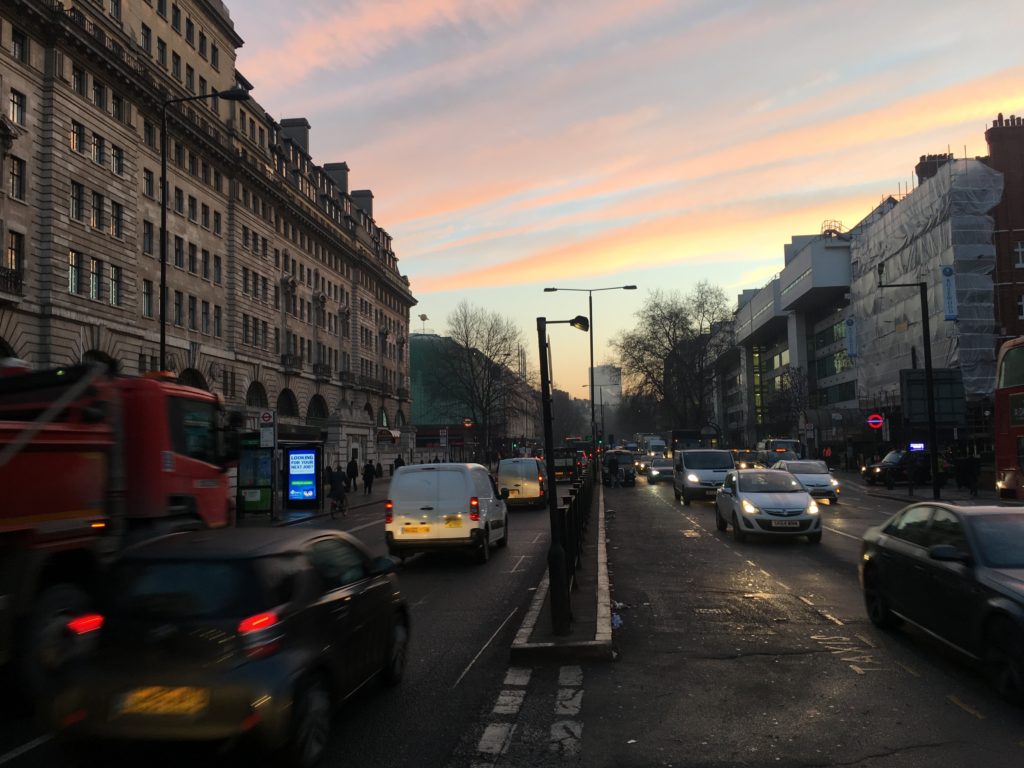On Monday, the Ultra Low Emission Zone (ULEZ) will come into effect in central London. This is a world leading and ground breaking new policy that will radically improve London’s air quality for the younger generations, and especially for the poorest Londoners. By charging all but the cleanest vehicles to drive into it, the ULEZ – which will initially cover the same area as the congestion charge zone – will, along with other mayoral policies, encourage and enable people to change to cleaner forms of transportation.
Currently, London’s air is causing a public health crisis, contributing to nearly 10,000 early deaths each year and some of the highest rates of asthma in Europe. Each week seems to bring a new study showing the harm caused by polluted air to our bodies and even mental health. The Mayor is leading the way in taking action.
There is strong evidence that the poorest Londoners are most affected by air pollution. Data released in January showed that the most deprived areas of London have 24 per cent more nitrogen dioxide (NO2) pollution than the richest. The same data also showed that the most polluted areas were more likely to have higher ethnic minority than white populations. It is no coincidence therefore that Asthma UK revealed that the poorest parts of London have the highest numbers of asthma attacks. This is clearly unacceptable and cannot change soon enough.
We all know that prevention is better than cure, so tackling these health inequalities is rightly a priority for the Mayor. Road transport accounts for half of dangerous emissions in London, so we all need stringent action to reduce this. Modelling has confirmed that the Mayor’s actions on air quality, including the ULEZ and its expansion in 2021 out to the North and South Circular roads, will dramatically reduce the inequality in air pollution concentrations. By 2030, the gap between the most and least deprived areas will be reduced by 71 per cent, a hugely significant fall. Also by 2030 there will no longer be any schools in areas with illegal air pollution, protecting London’s children from toxic air. I cannot overstate the significance of these changes.
To fully maximise the potential of the ULEZ, some Londoners need help with making the switch to clean transportation. That’s why the Mayor introduced his £48 million diesel scrappage scheme for eligible micro-businesses, charities and the poorest Londoners. This provides grants to help meet the cost of changing to an electric or hybrid vehicle. These have dramatically lower running costs, which means changing to them can save owners money in the long run.
What is especially exciting about the scheme is that Londoners can also apply for a grant to contribute to the costs of public transport in exchange for scrapping their dirty vehicle. We know that travel costs can be a struggle for Londoners, so I welcome the Mayor including this as an option. He is also investing in making our public transport more affordable and accessible and has set the ambitious goal of 80 per cent of journeys being made by walking, cycling or public transport by 2021.
Increasing mode shift to these cleaner forms of transport will not only reduce air pollution, but also encourage more active travel, meaning Londoners benefit from physical activity. With air pollution costing London’s economy a staggering £3.7 billion each year, taking action makes economic sense, as well as being the right thing to do to support Londoners.
All that said, even one death related to air pollution is one too many. We cannot stop working together to improve air pollution once the ULEZ is in place. London also suffers from transboundary pollution, which is pollution created elsewhere but blown into the city by the weather. Londoners need action to be taken at national and international level to truly make our air safe to breathe. I hope that other cities can learn from London’s example and take similar steps to improve their air. But in the meantime, this will be a happy Monday.
Leonie Cooper is the London Assembly Member for Merton & Wandsworth and a member of the Assembly’s environment committee.
